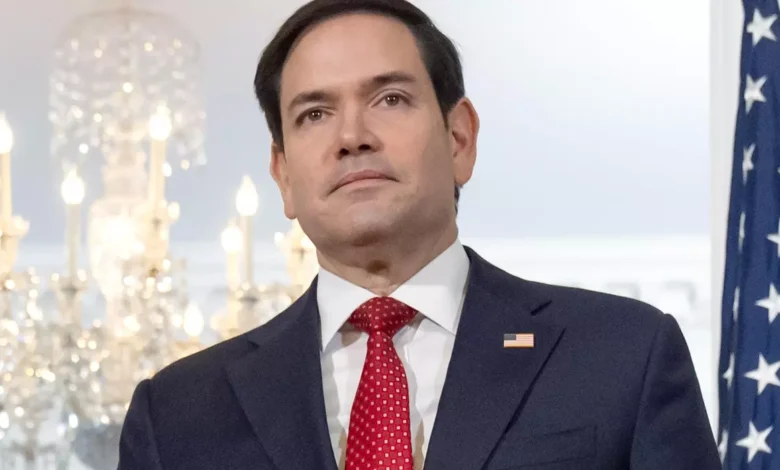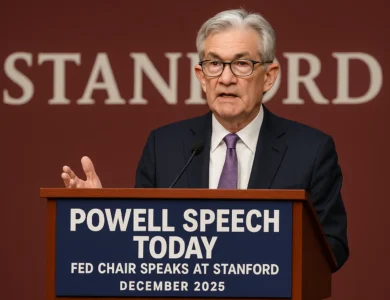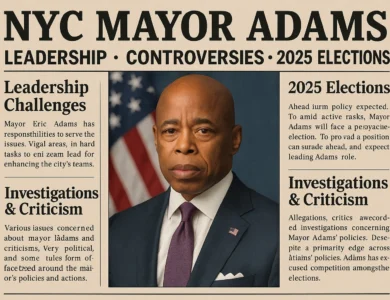
In the dynamic landscape of American politics, few figures have captured national attention quite like Marco Rubio, Florida’s distinguished Republican senator who has become one of the most recognizable faces in contemporary conservative politics. Since first stepping onto the political stage in the early 2000s, Marco Rubio has evolved from a young state legislator in Miami to one of the most influential senators representing the Sunshine State and championing conservative values on the national stage.
Born to Cuban immigrant parents, Marco Rubio’s story embodies the American Dream narrative that has resonated with millions of voters across Florida and beyond. His journey from humble beginnings to the halls of the U.S. Senate represents not just personal achievement, but also the changing demographics and political landscape of modern Florida politics. As a Florida senator, Rubio has consistently positioned himself as a strong advocate for conservative principles while navigating the complex dynamics of representing one of America’s most diverse and politically significant states.
Throughout his tenure as a Republican senator, Marco Rubio has built a reputation as a thoughtful legislator who brings both passion and pragmatism to his role. His influence extends far beyond Florida’s borders, as he has emerged as a key voice in national debates on foreign policy, immigration reform, economic policy, and social issues. This comprehensive examination of Marco Rubio’s life, career, and political impact reveals how a son of immigrants became one of America’s most prominent conservative politicians and continues to shape the direction of the Republican Party.
Early Life and Cuban Heritage: The Foundation of Marco Rubio’s Values
Marco Rubio’s early life story begins with the immigrant experience that would fundamentally shape his worldview and political philosophy. Born Marco Antonio Rubio on May 28, 1971, in Miami, Florida, he was raised in a working-class family deeply rooted in Cuban heritage. His parents, Mario Rubio Reina and Oriales Garcia, had immigrated to the United States from Cuba, carrying with them the hopes and dreams that characterize the immigrant experience in America.
The Rubio family faced the typical challenges of immigrant families adapting to life in a new country. His father worked various jobs, including as a bartender and security guard, while his mother worked in retail and as a hotel housekeeper. These formative experiences instilled in young Marco Rubio a deep appreciation for hard work, family values, and the opportunities that America provides to those willing to pursue them.
Growing up in West Miami, Marco Rubio was immersed in the vibrant Cuban-American community that has played such a significant role in shaping South Florida’s cultural and political landscape. This environment exposed him to stories of those who had fled communist Cuba, experiences that would later inform his strong stance against authoritarian regimes and his passionate advocacy for human rights and democracy abroad.
Marco Rubio’s educational journey took him from South Miami Senior High School to Tarkio College in Missouri on a football scholarship, before transferring to the University of Florida, where he earned his bachelor’s degree in political science. He then pursued his law degree at the University of Miami Law School, graduating in 1996. These educational experiences broadened his perspectives while reinforcing his connection to Florida as his permanent home and the state he would eventually serve in various capacities.
Political Beginnings: From Local Politics to State Leadership
Marco Rubio’s entry into politics began at the grassroots level, demonstrating the traditional pathway that many successful politicians follow in building their careers. His first foray into electoral politics came in 1998 when he ran for a seat on the West Miami City Commission. Although he was unsuccessful in this initial attempt, the experience provided valuable lessons about campaigning, voter outreach, and the importance of connecting with constituents on local issues.
The turning point in Marco Rubio’s early political career came in 2000 when he successfully ran for the Florida House of Representatives, representing District 111, which covered parts of Miami-Dade County. This victory marked the beginning of his rapid ascent through the ranks of Florida politics. As a freshman legislator, Marco Rubio quickly distinguished himself as an articulate advocate for conservative principles and an effective legislator capable of building coalitions across party lines.
During his time in the Florida House, Marco Rubio demonstrated the leadership qualities that would later serve him well in national politics. He focused on issues particularly relevant to his constituents, including education reform, tax relief, and economic development initiatives that would benefit Florida’s growing economy. His ability to articulate complex policy positions in accessible terms helped establish his reputation as a rising star within the Republican Party.
Marco Rubio’s legislative achievements during this period included his work on education policy, where he championed school choice initiatives and pushed for reforms designed to improve educational outcomes for Florida students. He also worked on tax policy, advocating for measures that would reduce the burden on Florida families and businesses while maintaining essential government services.
Rise to Senate Speaker: Leadership in Florida’s Legislature
The trajectory of Marco Rubio’s career reached a significant milestone in 2006 when he was elected Speaker of the Florida House of Representatives, making him one of the youngest speakers in the state’s history at just 35 years old. This achievement represented not just personal success, but also recognition from his colleagues of his leadership abilities and his effectiveness as a legislator.
As House Speaker, Marco Rubio initiated several innovative approaches to governance that would become hallmarks of his political philosophy. One of his most notable initiatives was “100 Ideas for America’s Future,” a project that solicited policy suggestions from citizens across Florida. This approach demonstrated his commitment to responsive government and his belief in the wisdom of ordinary citizens in shaping public policy.
During his tenure as Speaker, Marco Rubio championed significant legislative reforms that had lasting impacts on Florida. He worked on property tax reform, seeking to provide relief to homeowners facing escalating property taxes. His efforts in this area culminated in a comprehensive tax reform package that provided substantial savings to Florida property owners while maintaining funding for essential services.
Marco Rubio also focused extensively on education policy during his time as Speaker, continuing his advocacy for school choice and educational innovation. He supported the expansion of charter schools, voucher programs, and other initiatives designed to provide parents with more options in their children’s education. These efforts reflected his belief that competition and choice in education would lead to better outcomes for students across Florida.
The experience of serving as House Speaker provided Marco Rubio with valuable executive leadership experience and helped him develop the skills necessary for higher office. His success in managing the legislative process, building coalitions, and advancing conservative policy priorities established him as a formidable political figure with the potential for statewide and national office.
U.S. Senate Campaign: The Tea Party Wave and National Recognition
Marco Rubio’s decision to run for the U.S. Senate in 2010 marked a pivotal moment both in his career and in the broader political landscape of Florida and the nation. Initially considered a longshot candidate against the well-established and well-funded Governor Charlie Crist, Marco Rubio’s campaign capitalized on the anti-establishment sentiment that characterized the Tea Party movement and the broader political environment of 2010.
The Senate campaign showcased Marco Rubio’s ability to articulate conservative principles in compelling ways that resonated with voters frustrated with government overreach and excessive spending. His message of limited government, fiscal responsibility, and constitutional conservatism found a receptive audience among Florida voters who were looking for fresh leadership and new approaches to the challenges facing the country.
Marco Rubio’s campaign strategy effectively utilized social media and grassroots organizing to overcome significant financial disadvantages early in the race. His ability to connect with voters through personal appearances, town halls, and digital outreach demonstrated the evolving nature of political campaigning and his adaptability to new communication technologies.
The momentum that Marco Rubio built throughout the campaign eventually led Governor Crist to abandon the Republican primary and run as an independent candidate, fundamentally changing the dynamics of the race. This development validated Marco Rubio’s appeal within the Republican Party and demonstrated his ability to build a broad coalition of conservative supporters.
Marco Rubio’s victory in the 2010 Senate election was decisive, earning him 49% of the vote in a three-way race against Crist and Democrat Kendrick Meek. This victory not only sent him to Washington but also established him as a national Republican figure with significant potential for future leadership roles within the party.
Senate Career and Legislative Achievements
Since taking office in January 2011, Marco Rubio has established himself as one of the most active and influential members of the U.S. Senate, serving on several key committees and taking leadership roles on issues of particular importance to Florida and the nation. His committee assignments have included the Senate Foreign Relations Committee, the Senate Intelligence Committee, and the Senate Committee on Small Business and Entrepreneurship, positions that have allowed him to shape policy in areas where he has developed considerable expertise.
Marco Rubio’s legislative record reflects his commitment to conservative principles while also addressing the specific needs and interests of Florida constituents. He has been a strong advocate for policies that support Florida’s tourism industry, aerospace sector, and agricultural interests. His work on behalf of Florida businesses and workers has included efforts to reduce regulatory burdens, support international trade, and promote policies that encourage economic growth and job creation.
In the realm of foreign policy, Marco Rubio has emerged as one of the Senate’s leading voices on issues related to Latin America, human rights, and national security. His Cuban heritage and deep understanding of regional dynamics have made him a go-to expert on policies affecting Cuba, Venezuela, Nicaragua, and other countries in the Western Hemisphere. His advocacy for democracy and human rights has been consistent and passionate, reflecting both his personal background and his policy convictions.
Marco Rubio’s work on the Senate Intelligence Committee has given him unique insights into national security challenges and has positioned him as a knowledgeable voice on issues related to cybersecurity, counterterrorism, and intelligence operations. His contributions to national security policy have been recognized by colleagues from both parties and have enhanced his reputation as a serious legislator capable of handling complex and sensitive issues.
The Florida senator has also been active on domestic policy issues, including tax reform, healthcare, and education policy. His support for the Tax Cuts and Jobs Act of 2017 reflected his longstanding commitment to reducing tax burdens on individuals and businesses, while his work on education policy has continued themes he pursued during his time in the Florida legislature.
Foreign Policy Expertise and International Influence
One of the defining aspects of Marco Rubio’s Senate career has been his development into one of the chamber’s most respected voices on foreign policy and international affairs. His expertise in this area has made him a sought-after commentator on global events and has positioned him as a key figure in shaping American foreign policy, particularly regarding Latin America and authoritarian regimes worldwide.
Marco Rubio’s approach to foreign policy has been characterized by a strong commitment to American leadership, human rights, and democratic values. His criticism of authoritarian regimes, particularly in Cuba, Venezuela, and Nicaragua, has been consistent and forceful. He has used his platform to advocate for policies that support democratic movements and oppose dictatorial governments that oppress their citizens.
The Florida senator’s work on China policy has also been notable, as he has been one of the most vocal critics of the Chinese Communist Party’s human rights abuses and aggressive international behavior. His legislation targeting Chinese companies involved in human rights violations and his advocacy for stronger responses to Chinese economic and technological threats have helped shape the bipartisan consensus that China represents a significant challenge to American interests.
Marco Rubio’s involvement in Middle East policy has included strong support for Israel and advocacy for policies that promote regional stability while countering threats from Iran and terrorist organizations. His work on the Senate Foreign Relations Committee has given him opportunities to shape legislation and oversight activities related to these critical issues.
The senator’s expertise in foreign policy has also extended to his work on sanctions policy, where he has been instrumental in developing and implementing targeted sanctions against human rights violators and corrupt officials worldwide. His leadership on the Magnitsky Act and similar legislation has demonstrated his commitment to using American economic power to promote human rights and combat corruption globally.
Economic Policy and Business Advocacy
Throughout his Senate tenure, Marco Rubio has been a consistent advocate for policies that promote economic growth, support small businesses, and reduce regulatory burdens on American entrepreneurs. His work on economic policy has been informed both by his conservative principles and by his understanding of the specific economic challenges and opportunities facing Florida and similar states with diverse, growing economies.
Marco Rubio’s advocacy for tax reform has been one of his signature issues, dating back to his time in the Florida legislature. His support for the 2017 Tax Cuts and Jobs Act included specific advocacy for provisions that would benefit working families, including the expansion of the child tax credit. His work on this issue demonstrated his ability to influence major legislation while maintaining focus on policies that would help middle-class families.
The Florida senator has also been active in promoting policies that support small businesses and entrepreneurs, recognizing their critical role in job creation and economic innovation. His work on the Senate Small Business Committee has focused on reducing regulatory burdens, improving access to capital, and promoting policies that help small businesses compete and grow.
Marco Rubio’s approach to trade policy has evolved over time, reflecting changing economic conditions and growing concerns about the impact of trade agreements on American workers. While maintaining support for free trade principles, he has advocated for trade policies that better protect American interests and ensure that trade agreements benefit American workers and businesses.
His work on issues related to technological innovation and competitiveness has also been significant, as he has recognized the importance of maintaining American leadership in emerging technologies while addressing the challenges posed by foreign competitors, particularly China.
Immigration Reform and Bipartisan Efforts
One of the most complex and challenging aspects of Marco Rubio’s Senate career has been his work on immigration reform, an issue that has particular significance given Florida’s diverse population and his own family’s immigrant background. His involvement in immigration policy has demonstrated both his willingness to work across party lines and the political challenges associated with this contentious issue.
Marco Rubio was a key member of the bipartisan “Gang of Eight” senators who developed comprehensive immigration reform legislation in 2013. This effort represented one of the most significant attempts at immigration reform in decades and showcased Marco Rubio’s ability to work with Democratic colleagues to find common ground on difficult issues.
The proposed legislation included provisions for border security enhancements, a pathway to legal status for undocumented immigrants, and reforms to legal immigration systems. Marco Rubio’s involvement in this effort reflected his understanding that immigration reform needed to address both security concerns and the reality of millions of people living in the United States without legal status.
Despite the bipartisan nature of the effort and Marco Rubio’s significant investment in the process, the legislation ultimately failed to advance in the House of Representatives. This outcome highlighted the political challenges associated with immigration reform and the difficulty of finding solutions that can satisfy diverse constituencies.
Marco Rubio’s work on immigration issues has continued beyond the 2013 effort, as he has remained engaged on specific aspects of immigration policy, including reforms to high-skilled immigration, improvements to temporary worker programs, and measures to address humanitarian crises that create refugee and asylum seekers.
Conclusion
Marco Rubio’s journey from the son of Cuban immigrants to one of America’s most influential senators represents a remarkable story of personal achievement and public service. His career has been marked by consistent advocacy for conservative principles, thoughtful engagement with complex policy issues, and a willingness to take on leadership roles even when they involve political risks.
As Florida’s senator, Marco Rubio has effectively represented the diverse interests of his constituents while building a national profile as a knowledgeable and articulate voice on foreign policy, economic issues, and social concerns. His ability to connect with voters, work across party lines when necessary, and maintain his principles while adapting to changing political circumstances has established him as a significant figure in contemporary American politics.
The impact of Marco Rubio’s service extends beyond his specific legislative achievements to include his role in shaping national conversations about America’s role in the world, the challenges facing working families, and the importance of maintaining democratic values and institutions. His continued presence in the Senate ensures that Florida will have strong representation in national debates and that conservative principles will have an articulate and passionate advocate in the halls of Congress.
Looking forward, Marco Rubio’s experience, expertise, and political skills position him as a leader who will continue to play an important role in American politics, whether in his current capacity as a Florida senator or in other roles that may emerge as the political landscape continues to evolve.
Read More: Explore the History and Significance of Downing Street






